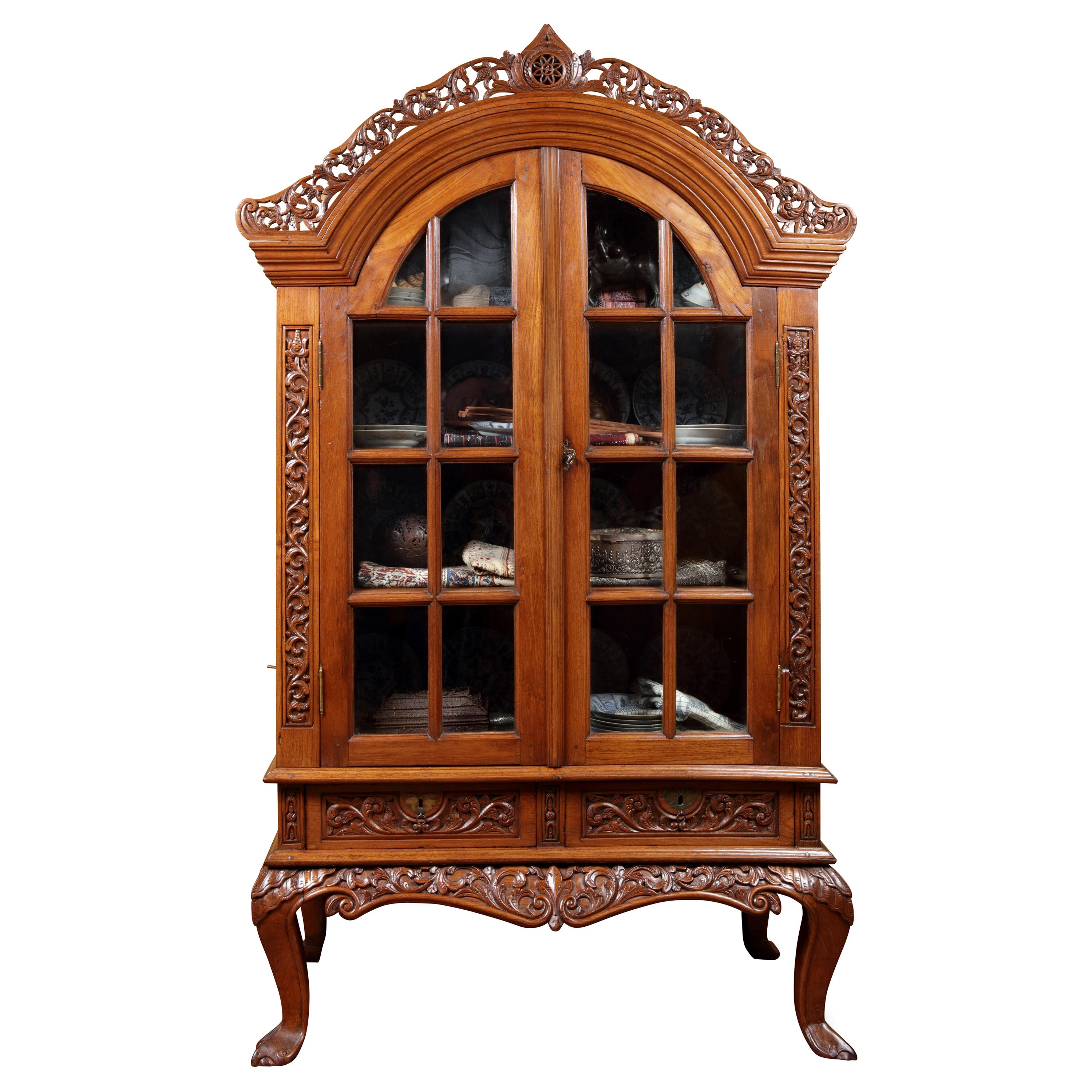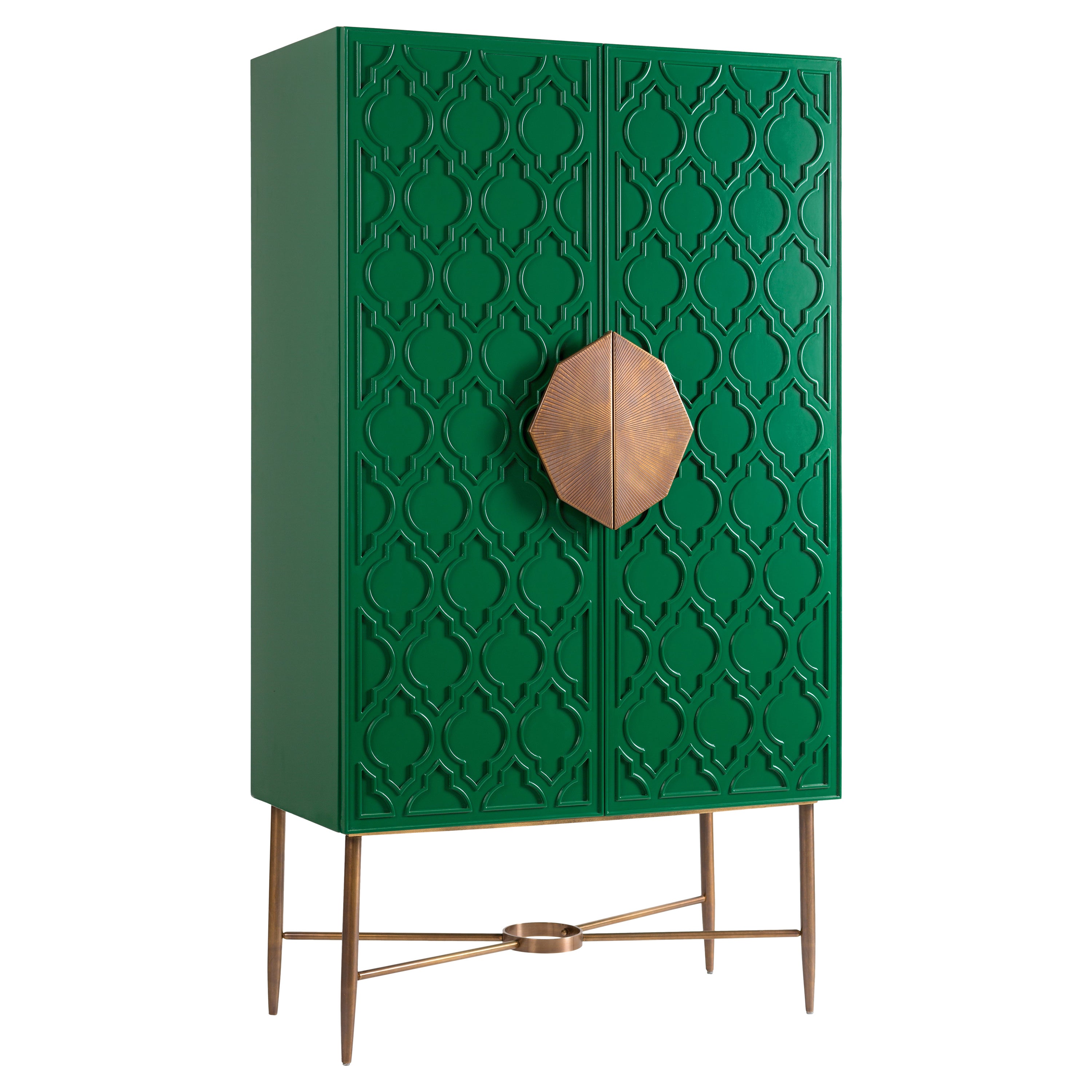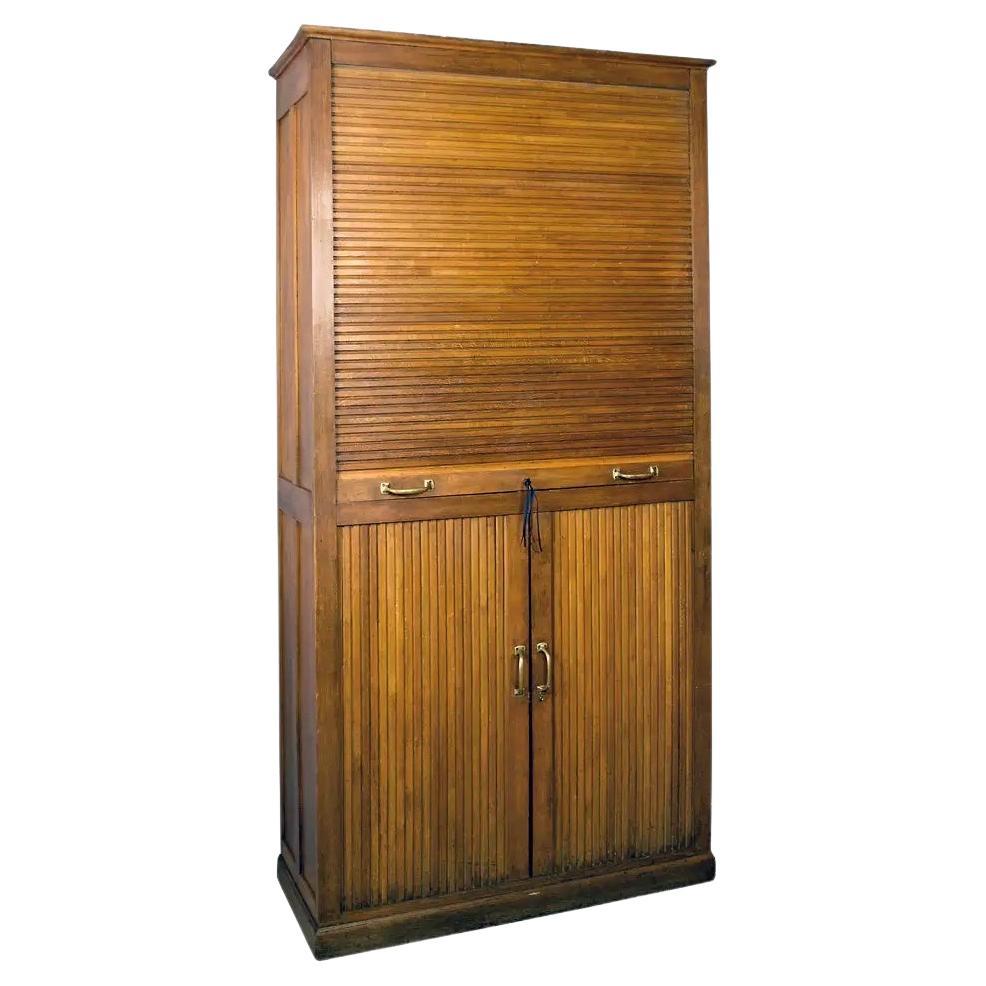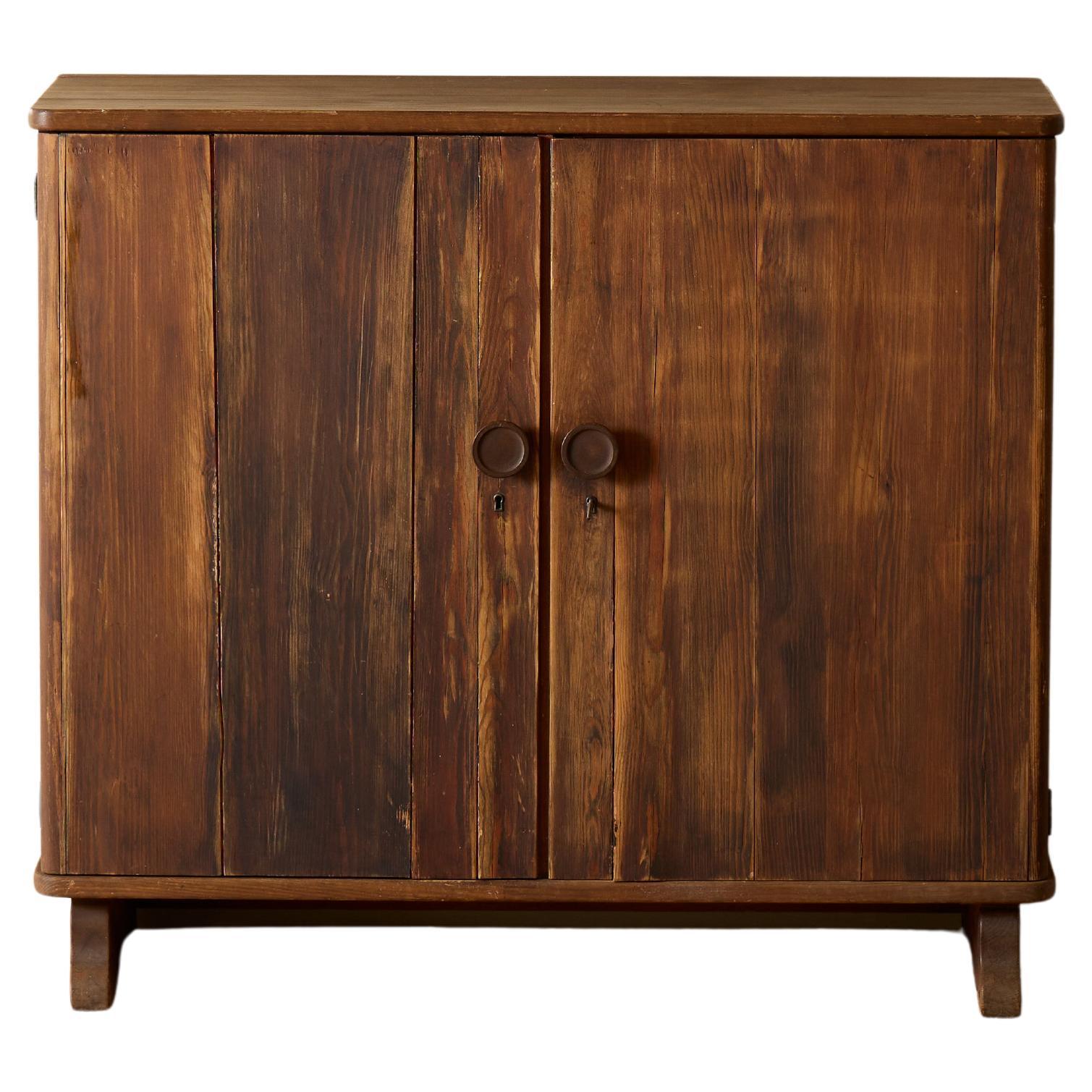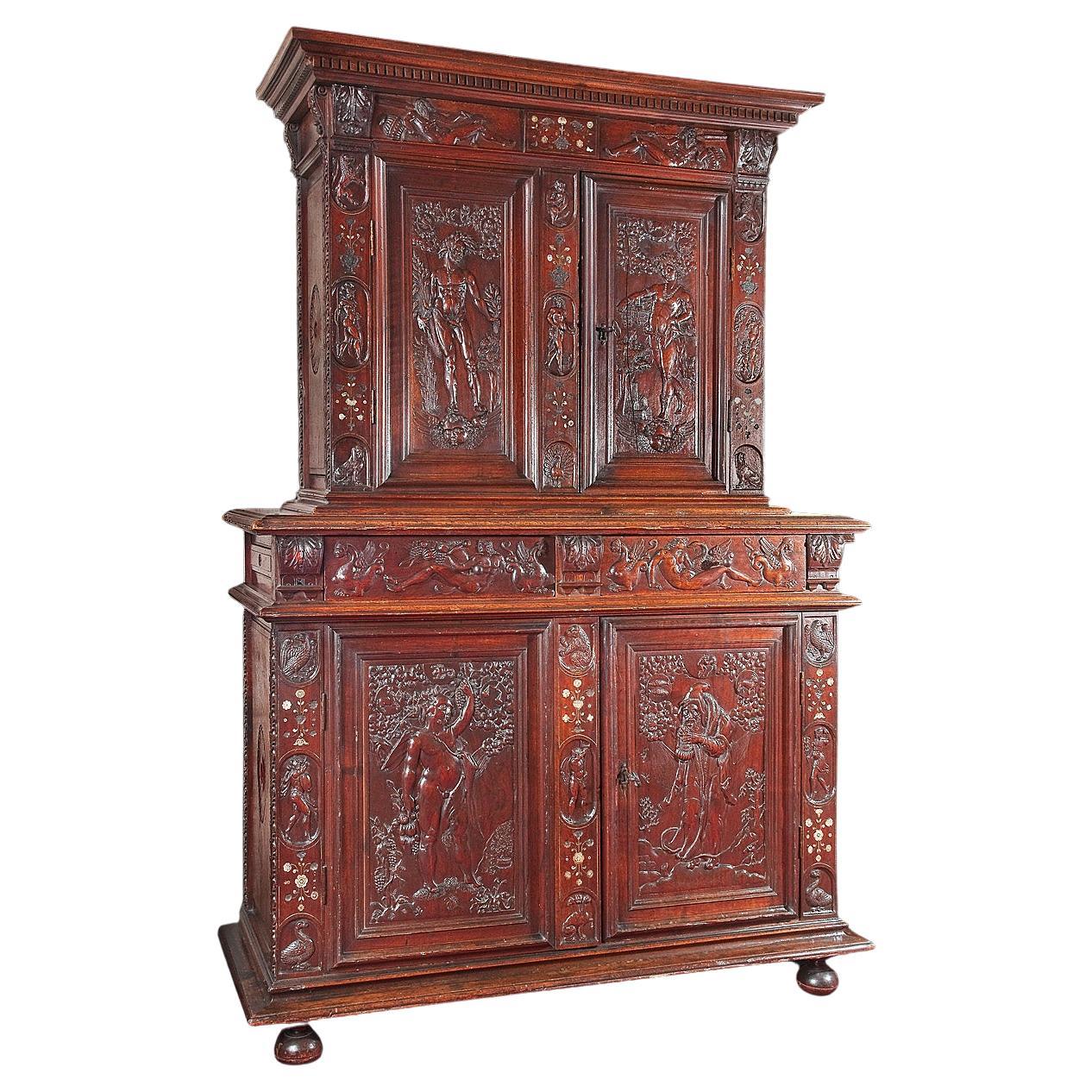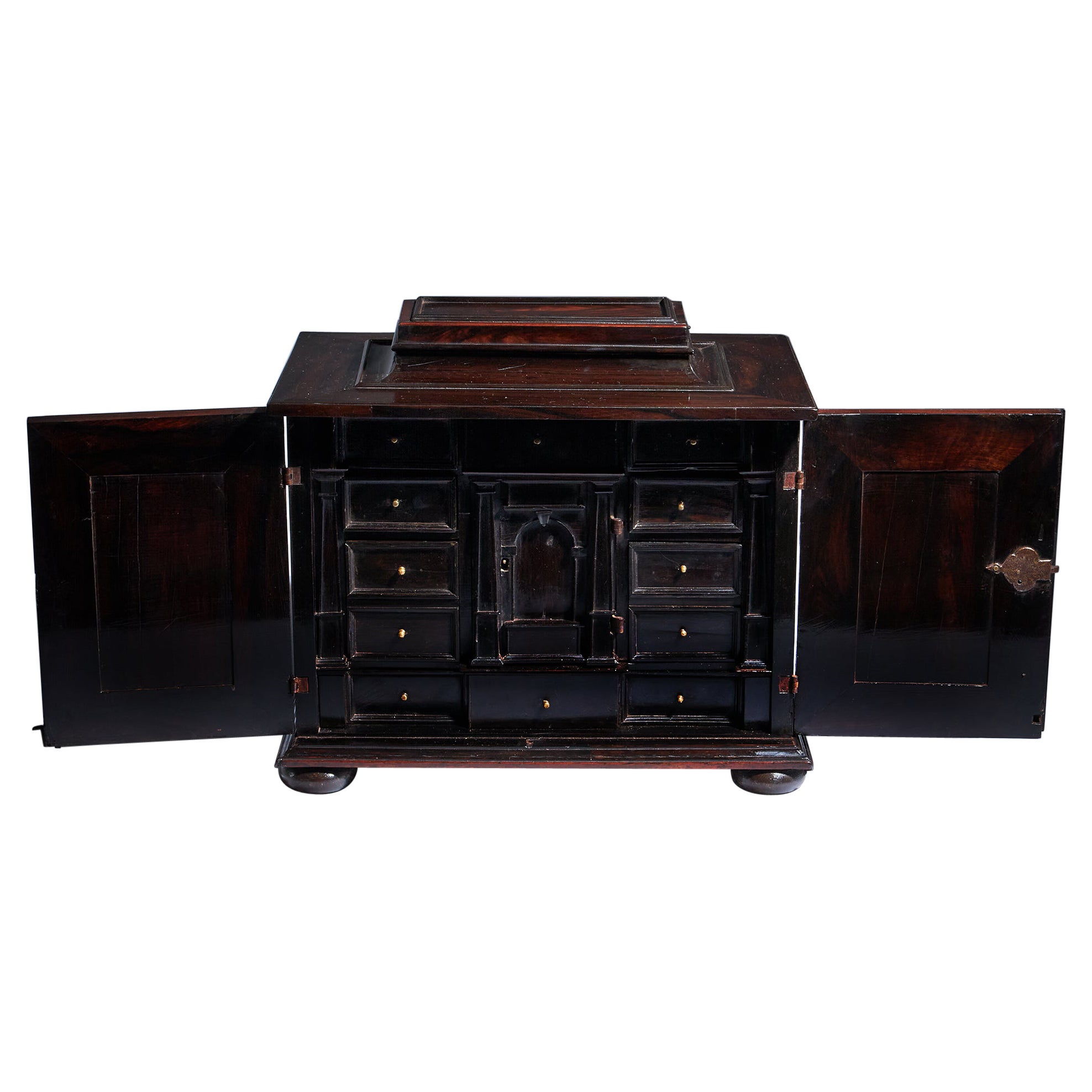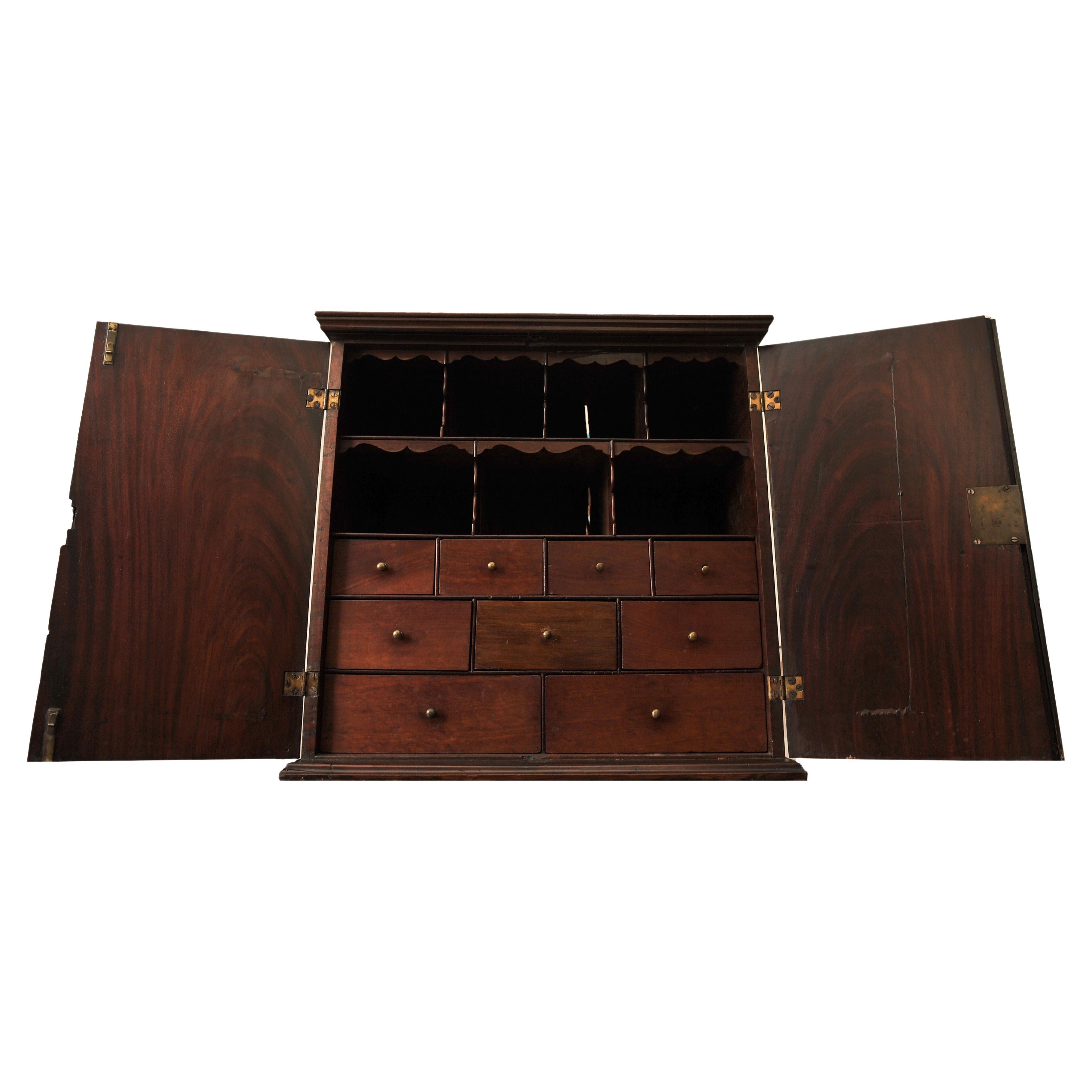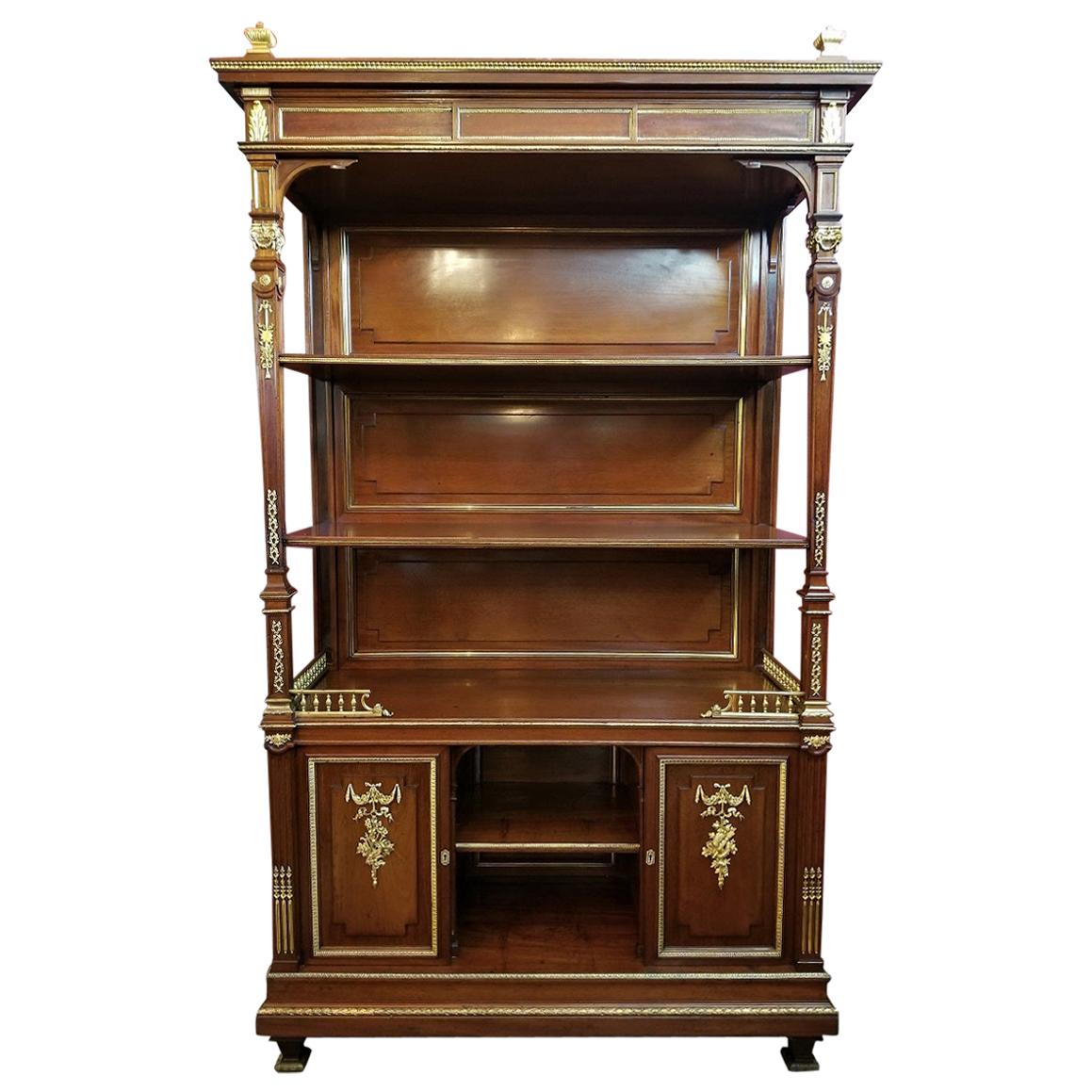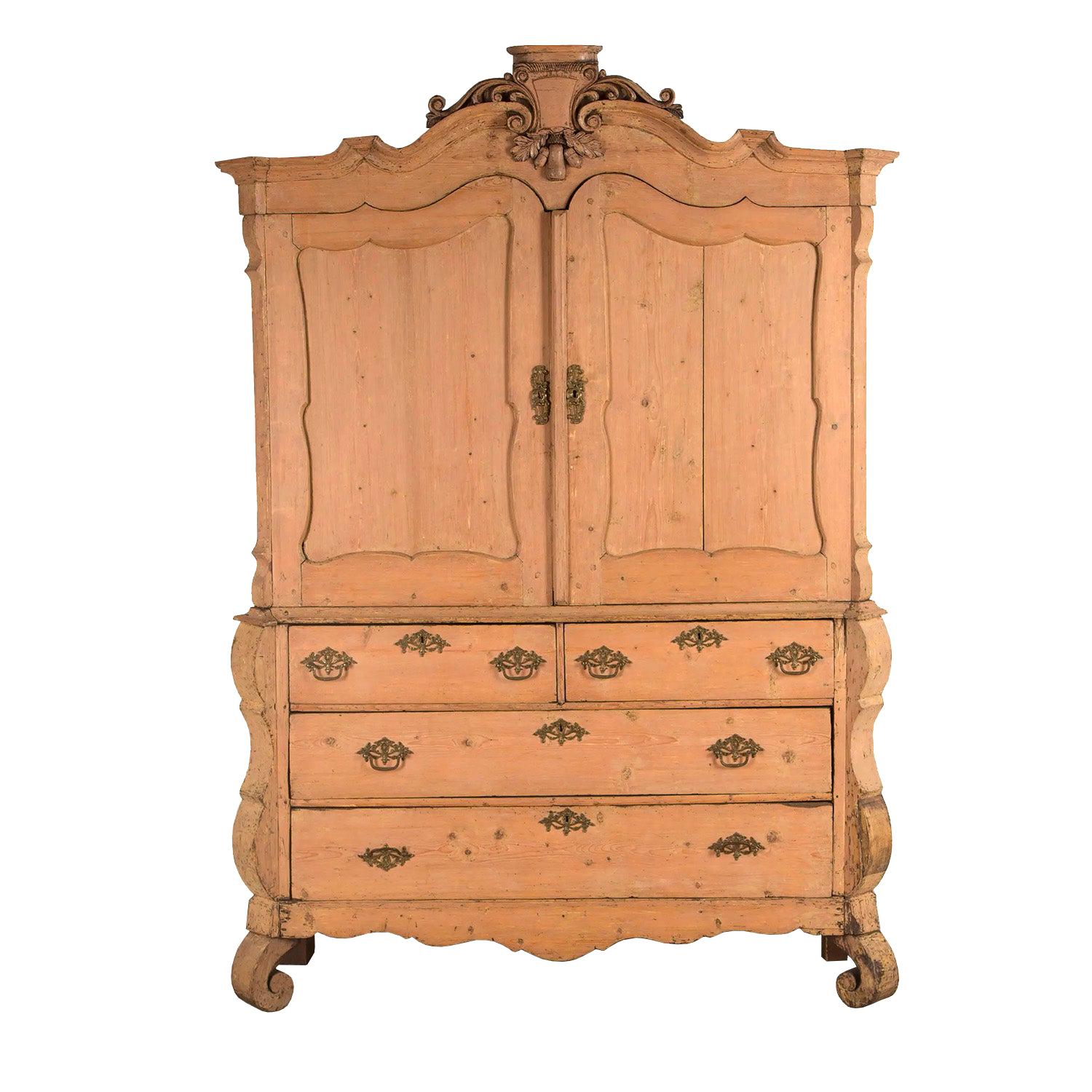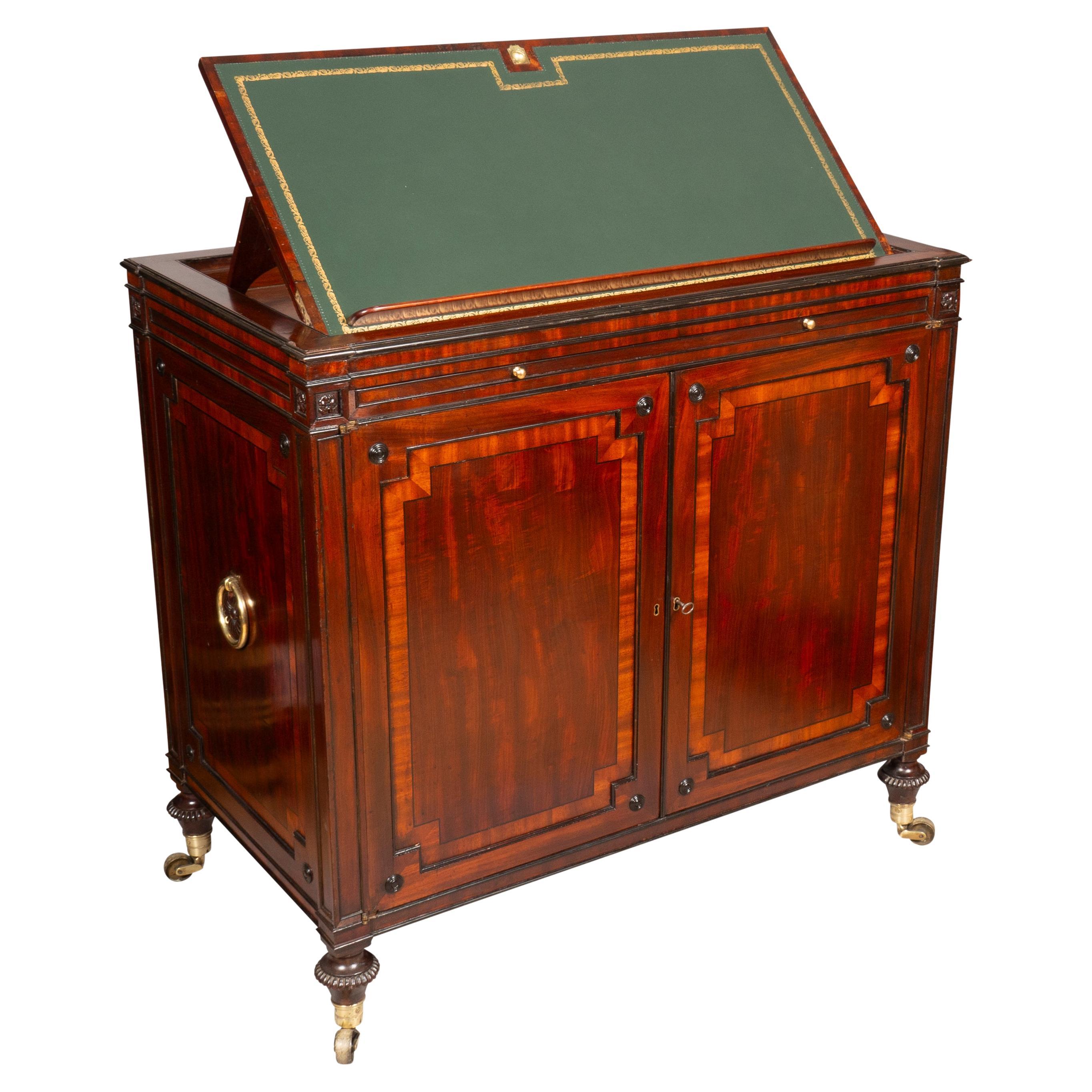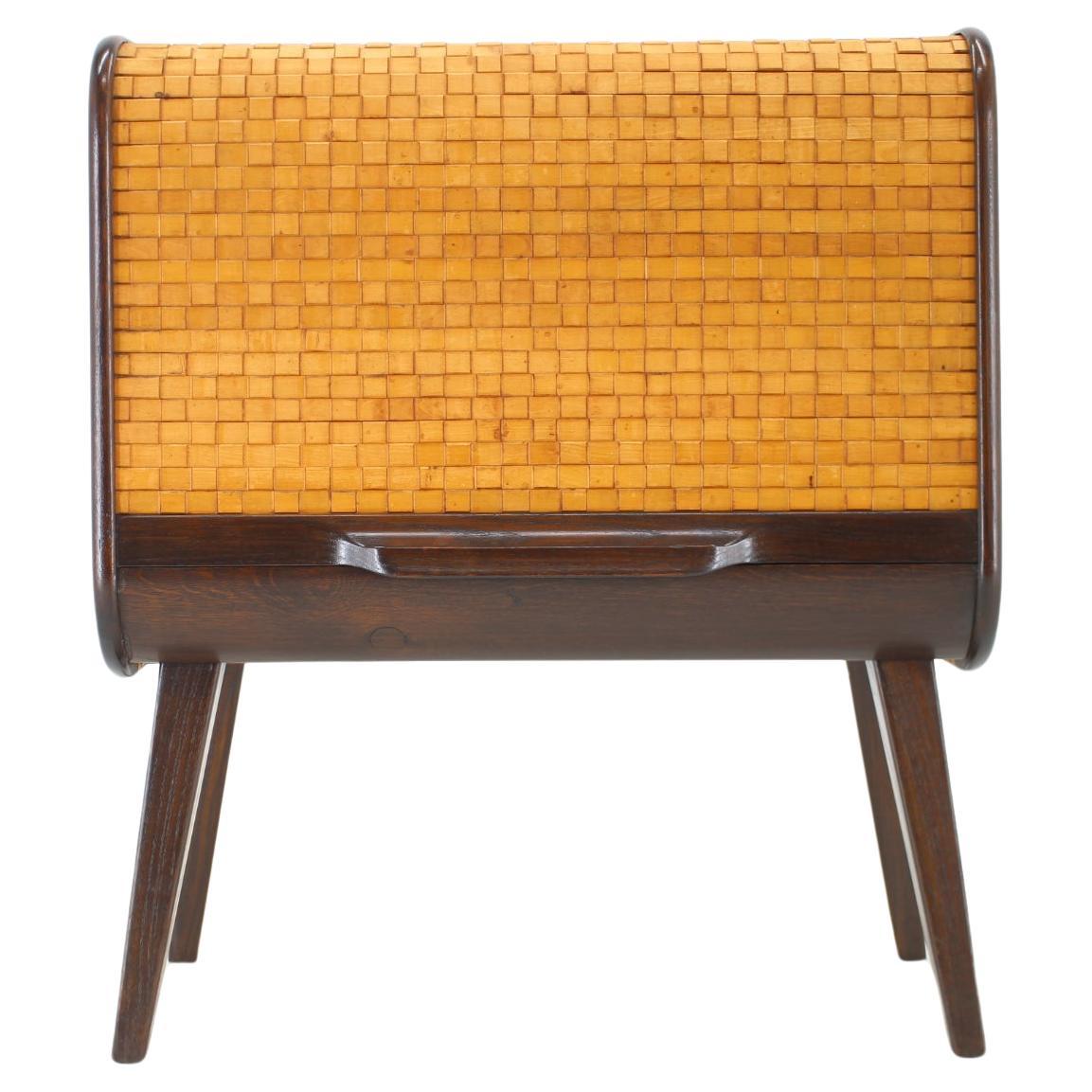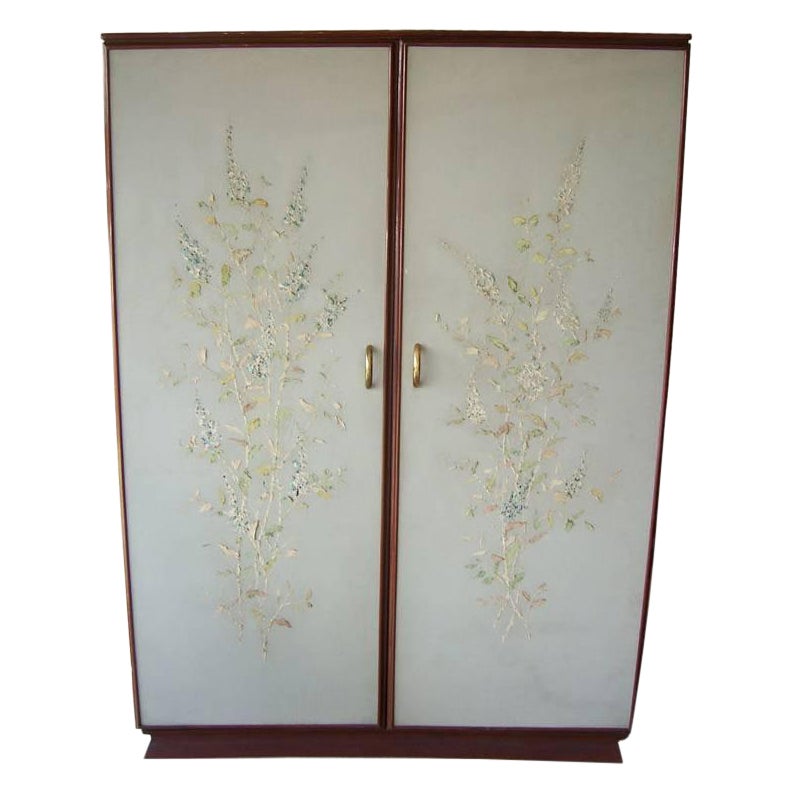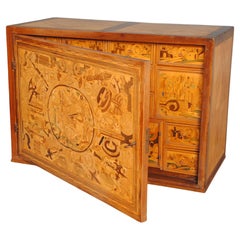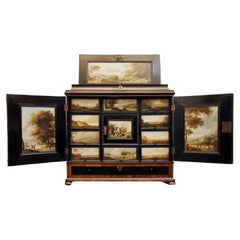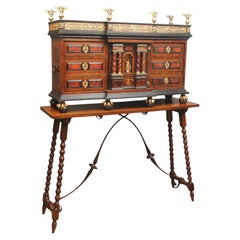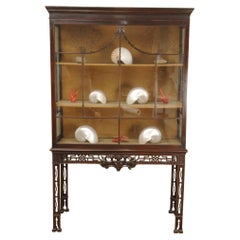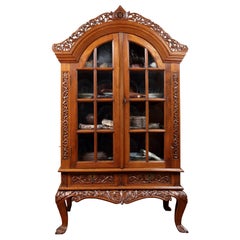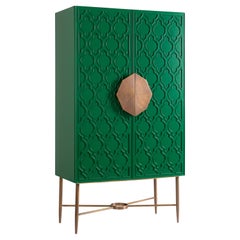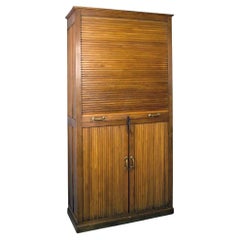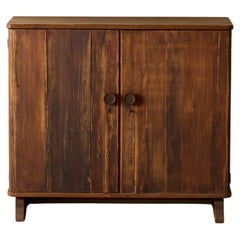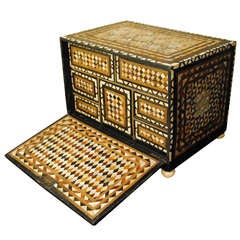
Rare Islamic Table Cabinet
View Similar Items
Want more images or videos?
Request additional images or videos from the seller
1 of 7
Rare Islamic Table Cabinet
$21,043List Price
About the Item
- Period:
- Date of Manufacture:1600
- Condition:
- Seller Location:Lincolnshire, GB
- Reference Number:1stDibs: LU91761020266
About the Seller
5.0
Vetted Professional Seller
Every seller passes strict standards for authenticity and reliability
Established in 1972
1stDibs seller since 2011
37 sales on 1stDibs
Typical response time: Several days
Associations
The British Antique Dealers' AssociationLAPADA - The Association of Arts & Antiques Dealers
Authenticity Guarantee
In the unlikely event there’s an issue with an item’s authenticity, contact us within 1 year for a full refund. DetailsMoney-Back Guarantee
If your item is not as described, is damaged in transit, or does not arrive, contact us within 7 days for a full refund. Details24-Hour Cancellation
You have a 24-hour grace period in which to reconsider your purchase, with no questions asked.Vetted Professional Sellers
Our world-class sellers must adhere to strict standards for service and quality, maintaining the integrity of our listings.Price-Match Guarantee
If you find that a seller listed the same item for a lower price elsewhere, we’ll match it.Trusted Global Delivery
Our best-in-class carrier network provides specialized shipping options worldwide, including custom delivery.More From This Seller
View All17th Century German Marquetry Table Cabinet
Located in Lincolnshire, GB
A German single door table cabinet. The front is inlaid with a Knight on horse back set within an oval and surrounded with a trophy of arms. The fitt...
Category
Antique Early 17th Century German Cabinets
Materials
Steel
A Fine Antwerp 17th Century Painted Table Cabinet
Located in Lincolnshire, GB
Fine Antwerp 17th Century Painted Table Cabinet, Belgian, Circa 1650
An ebony and walnut banded table cabinet with Ripple moulds, the two doors open to reveal a fitted interior. The...
Category
Antique 17th Century Belgian Cabinets
Materials
Ebony, Walnut
Spanish Tortoiseshell Cabinet On Stand
Located in Lincolnshire, GB
A Spanish ormolu mounted cabinet on original stands. The banks of drawers either side of a central cupboard all with red tortoise shell panels and turned columns. Standing on claw fe...
Category
Antique Early 19th Century Spanish Cabinets
Materials
Ormolu
19th Century Chippendale Design Mahogany Display Cabinet
Located in Lincolnshire, GB
A 19th century mahogany display cabinet with finely carved details and open fret work legs to the stand, the upper section with glazed sides and front with pagoda shaped glazing bars...
Category
Antique 19th Century Chippendale Cabinets
Materials
Glass, Mahogany
19th Century Microscope Slide Cabinet and 280 Slides
Located in Lincolnshire, GB
A fine 19th century mahogany slide case with glazed door and original brass carrying handle, containing 20 drawers each with numbered ebony knobs. All with 14 slides.
circa 1845.
Category
Antique Mid-19th Century Cabinets
Materials
Brass
Superb 17th Century Spanish Vergueno On Stand
Located in Lincolnshire, GB
A fine example of a late 17th century Spanish vargueno on stand. The early mahogany cabinet has the original iron mounts and the fall front opens to reveal a beautifully fitted inter...
Category
Antique Late 17th Century Spanish Cabinets
Materials
Iron
You May Also Like
Islamic Indonesian Djati Wood Display Cabinet, circa 1917
Located in Amsterdam, NL
An Indonesian Djati display cabinet
Chinese furniture-makers working in Batavia, late 18th century, dated 1799
Measures: H. 201.5 x W. 120 x D. 53.5 cm
In the middle of the ...
Category
Early 20th Century Indonesian Dutch Colonial Cabinets
Materials
Teak
Green Lacquered Cabinet with Islamic Pattern and Hand-Crafted Brass Handle
By Shewekar Elgharably
Located in Cairo, EG
Green Lacquered Cabinet with Islamic Pattern and Hand-Crafted Brass Handle.
Our Andalusia Art Deco cabinet is inspired from our rich Islamic heritage....
Category
2010s Egyptian Modern Cabinets
Materials
Brass
Rare French Filing Cabinet
Located in Los Angeles, CA
This oak cabinet has two compartments. The lower section has fixed shelves and the doors roll back horizontally. The upper compartment is divided in two parts with shelves which can ...
Category
Vintage 1940s French Art Deco Cabinets
Materials
Oak
Rare Swedish Pine Cabinet, 1930s
By Otto Schulz
Located in Stockholm, SE
Rare Swedish dark stained pine cabinet with beautiful patina.
Produced in Sweden, late 1930s.
Category
Vintage 1930s Swedish Scandinavian Modern Cabinets
Materials
Pine
Rare Renaissance Cabinet Richly Carved
Located in Saint-Ouen, FR
This rare Renaissance cabinet is richly decorated on the doors and drawers with carvings depicting the four seasons, and on the uprights and the entablature, alternating flower bouquets inlaid with mother of pearl. This is a beautifully conceived piece of furniture, representing a crowned portico with its entablature and cornice.
The upper body
Articulated separately in a ternary rhythm, as with the lower body, the upper part opens with two carved doors. The doors are framed by both the lateral uprights and the casing. There are cartouches carved into the casing in which mythological figures are depicted with flower bouquets.
On the doors:
On the right: Spring, a female figure crowned with a wreath of leaves, holding a basket full of flowers. She is wearing necklaces and bracelets on each arm, with drapery discretely wrapped around her body and is standing on a winged putti’s head. On each side are depicted a tree and a village with a steepled church. Above her head floats the three signs of the zodiac corresponding to the season: Aries, Taurus and Gemini.
On the left: Summer, a bearded man crowned with ears of corn and bearing armfuls of corn. He is standing on a similar winged putti, flanked by a tree and an ear of corn. The following three signs of the zodiac appear: Cancer, Leo and Virgo.
On the uprights and the central casing a number of smaller figures seem to represent virtues and vices that newly wedded couples should aspire to and avoid.
On each side, at the bottom of the uprights, there is a dog representing fidelity. Above, a lion embodies power, wisdom, and justice.
In between, on the left upright, there is a figure of noncombatant Athena wearing a helmet and holding a spear, an arrow pointing down and in her left hand, a shield, symbol of protective power. On the right upright, the goddess Venus controls the arrow of Cupid.
The iconography here acts as a clear reminder of the required virtues that both parts of a young couple need to fulfill: fidelity, power, wisdom and justice. For him, the goddess Athena focuses on the power. Whereas for her, it is Venus who shows how to control Cupid’s arrow.
On the central casing at the bottom, by way of contrast, there is a peacock, a symbol of pride and at the top, a monkey representing lust and mischief. In between, a woman holding a chain and a cup full of precious stones while on the floor sits a half empty opened casket. This can be interpreted as a symbol of extravagance.
Above, the entablature, decorated with male figures resting on leaking urns, may symbolize the passing of time. They are flanked by two consoles decorated with acanthus leaves and separated by flower bouquets (inlaid with mother of pearl). Finally on top, a cornice acts as a crown for the piece of furniture.
The lower body
The moulded base stands on four round, flattened feet.
Represented on the doors:
On the left: Autumn, a stocky, naked man crowned with vine leaves, holding fruits in his right hand and with his left, picking a bunch of grapes from a climbing vine. Standing on a mound, he is surrounded by a vine and a hill, at the foot of which a man presses the grapes in a big vat after the harvest. Above the climbing vine appear the signs of Libra, Scorpio and Sagittarius.
On the right: Winter, an elderly man wearing a fur cloak...
Category
Antique 16th Century French Renaissance Cabinets
Materials
Walnut
Rare 17th century South German Renaissance Table cabinet, Augsburg
Located in Oxfordshire, United Kingdom
A fine and rare mid-17th century ebony veneered architectural table cabinet of diminutive proportions, circa 1640. Augsuerg.
The moulded ebony veneered cabinet is surmounted with a...
Category
Antique 17th Century German Charles II Apothecary Cabinets
Materials
Ebony
